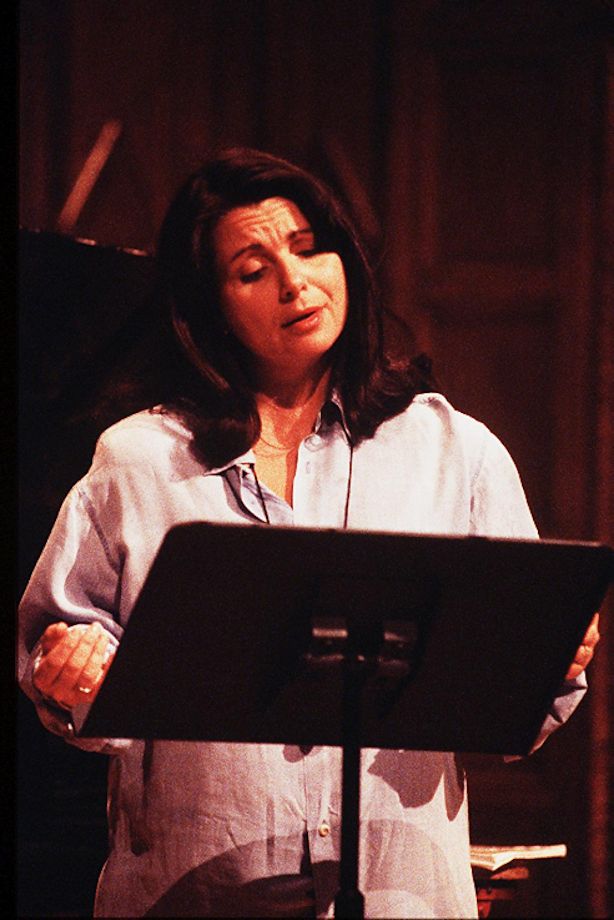

| Angelina Réaux was born in Houston,
Texas to a Spanish mother and a Cajun father. Trained as both an actress
and a singer Ms. Réaux has forged her own unique path and fits
no conventional mold and commands a repertoire from Strauss to Sondheim.
Perhaps best known for her affiliations with the works of Kurt Weill
and Leonard Bernstein, Ms. Réaux began her career in New York
as the Beggar Woman in the First National Tour of SWEENEY TODD with Angela
Lansbury and soon found herself engaged with opera companies, festivals,
and orchestras throughout the United States and Europe, working with
such companies as the Santa Fe Opera, Houston Grand Opera, Washington
Opera, Vienna Staatsoper, Glimmerglass Opera, Portland Opera, Boston Lyric
Opera, Accademia di Santa Cecilia, The New York Philharmonic, The Boston
Pops, The Boston Symphony, Orchestra of St. Luke’s, the Eos Orchestra,
The Philadelphia Orchestra, Orchestre Symphonique de Montreal, BBC Symphony,
Orchestre de Lyon, the Ensemble Modern, the Ojai Festival, Cabrillo Festival,
Caramoor Festival, the Gilmore Festival, Ravinia Festival, The Almeida
Festival, AldeburghFestival and Innsbruck Festival. After being chosen by Leonard Bernstein to play Francesca, the “I know you do” girl on his WEST SIDE STORY recording, and then as a part of the ensemble and understudy to DeDe in his and Stephen Wadsworth’s opera A QUIET PLACE in Vienna, Bernstein hand-picked her to sing the role of Mimi in Puccini’s LA BOHEME in Rome which was recorded by Deutsche Grammophon and televised on RAI Television throughout Europe. She has performed his JEREMIAH SYMPHONY with numerous orchestras around the world including The Slovenska Filharmonica and Radio Hilversum at the Concertgebouw. Her Bernstein Liederabend has been presented by the New York Historical Society and at the Innsbruck Bernstein Festival. Soon after Maestro Bernstein’s death his arranger Sid Ramin arranged five of his songs which she premiered in Vienna and which she later performed at Symphony Space for Wall To Wall Bernstein and WNYC Radio. Ms. Réaux created THERE IS A GARDEN:A CELEBRATION OF THE WORKS OF LEONARD BERNSTEIN for the Chicago Opera Theater, and BERSTEIN TONIGHT! which was performed in both Italy and at the Chautauqua Institute. She also recorded three of his songs on BERSTEIN: A JEWISH LEGACY, one being the song he wrote for his own Bar Mitzvah. It was at Northwestern University where Ms. Réaux was first introduced to the music of Kurt Weill, performing in his BERLIN TO BROADWAY. Her one-woman show, STRANGER HERE MYSELF, the music of Kurt Weill, conceived with director Christopher Alden, was produced by The New York Shakespeare Festival for an extended sold-out run and has since been performed throughout the United States as well as at the Almeida Festival in Islington, Great Britain and recorded on Koch Classics. She performed Weill’s MARIE GALANTE and JOHNNY JOHNSON at the Almeida Festival as well which, was also televised for the BBC. She has also performed MARIE GALANTE and Happy End in San Francisco at Herbst Hall with Sinfonia San Francisco, as well as in New York City at Merkin Concert Hall with The Orchestra of St. Luke’s. Ms. Réaux made her debut at The New York Philharmonic singing Weill’s THE SEVEN DEADLY SINS, which she has also sung with the Philadelphia Orchestra, the Orchestre Symphonique de Montreal, Sacramento Symphony and Vienna’s Ensemble Modern. At the New York Philharmonic’s urging, she was asked to put together a Weill cabaret which led to the birth of her show DANCING ON A VOLCANO: EIN BERLINER KABARETT (the music of Weill and his contemporaries) which has been performed in regional theatres, concert halls, clubs and cabarets throughout the U.S. At Carnegie Recital Hall she presented Weill songs in an archival concert of his works and appeared in a celebration of his American works there as well and at the Santa Fe Opera starred as the False Angele in the American premiere of his opera DER TSAR LÄSST SICH FOTOGRAFIEREN. Ms. Réaux’s relationship with perhaps Weill’s most popular work, THE THREEPENNY OPERA, began when she was cast by Stephen Wadsworth as Jenny Diver at The Skylight Theatre, then as Polly Peachum by Christopher Alden at The Chautauqua Institute. She then went on to direct and design productions in Tuscany, Italy, Santa Barbara and Sacramento (playing Mrs. Peachum), all of which were sold out and received rave notices. Ms. Réaux has also been judicator for the prestigious Lenya Competition on several occasions and her recording of Weill’s STREET SCENE as Rose Maurrant can be heard on the Decca/London label. Ms. Réaux has appeared with some of America’s finest repertory theatres including Berkeley Rep., Yale Rep, South Coast Rep, North Coast Rep, Washington D.C. Studio Repertory Theatre, The Royal George Theatre, Marriott Lincolnshire, Sacramento Stage Company, Santa Barbara’s Center Stage, NYC’s The Public Theatre, Playwright’s Horizon’s, John Houseman Theatre, The New Century, St. Clement’s, The Jewish Rep, Perry Street Theatre and the New Brunswick Theatre. She has performed in concert and cabaret series at such places as The Algonquin, the Ballroom, Paris’s Lapin Agile, the American Express Concert Series, Lincoln Center’s Avery Fisher and Alice Tully Halls, Merkin Concert Hall, both Carnegie Hall and Carnegie Recital Hall, San Francisco’s Plush Room and Boston’s Jordan Hall and Symphony Hall. She now resides in San Diego with her husband Michael Sokol and their cats and dog.
|
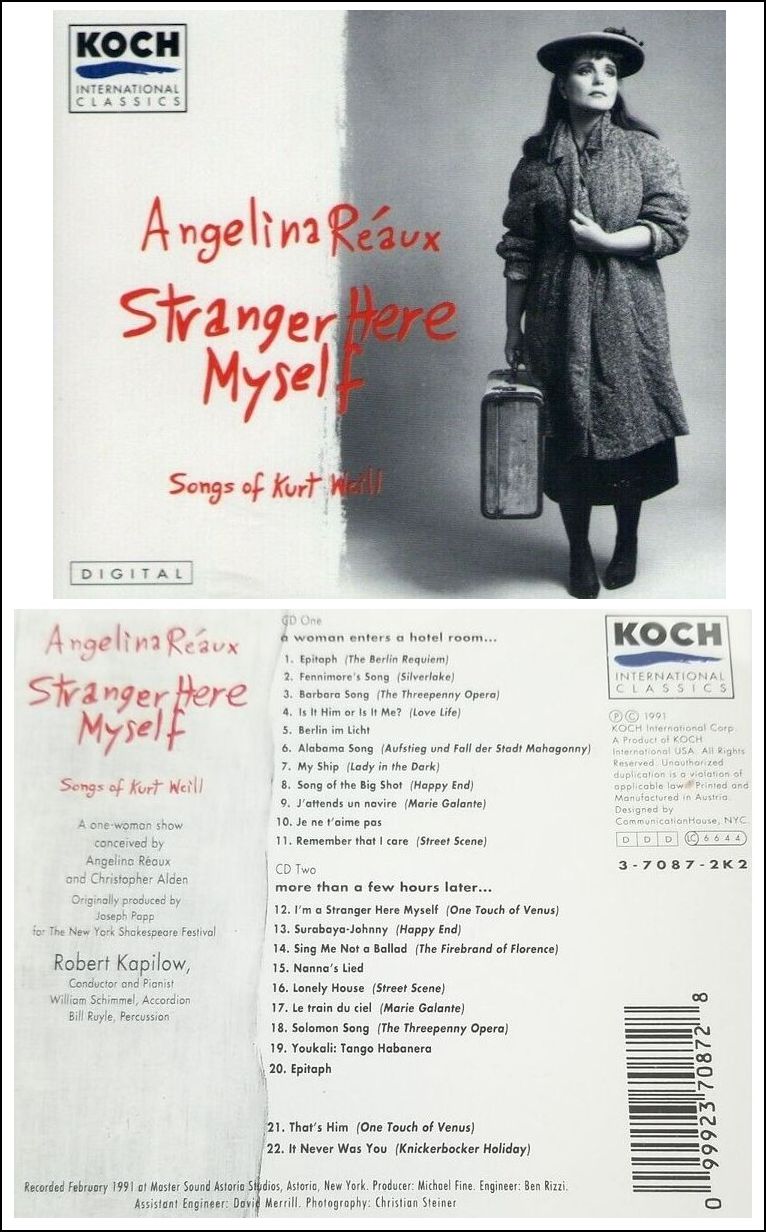
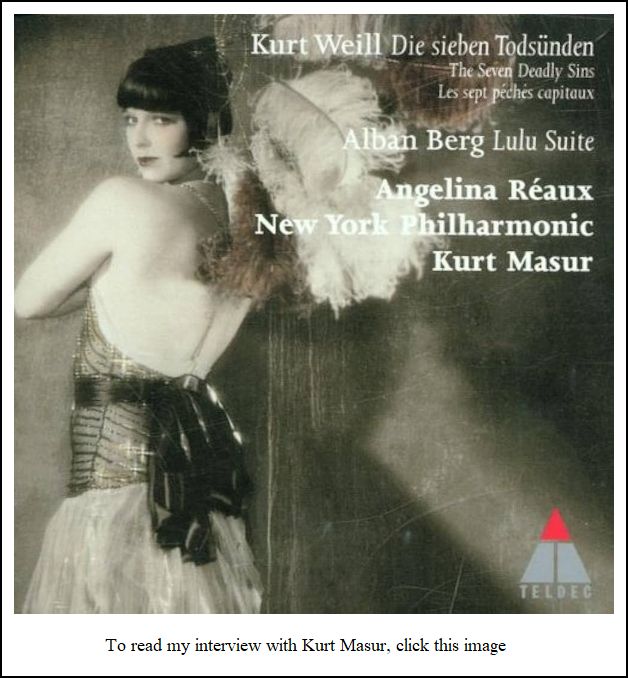
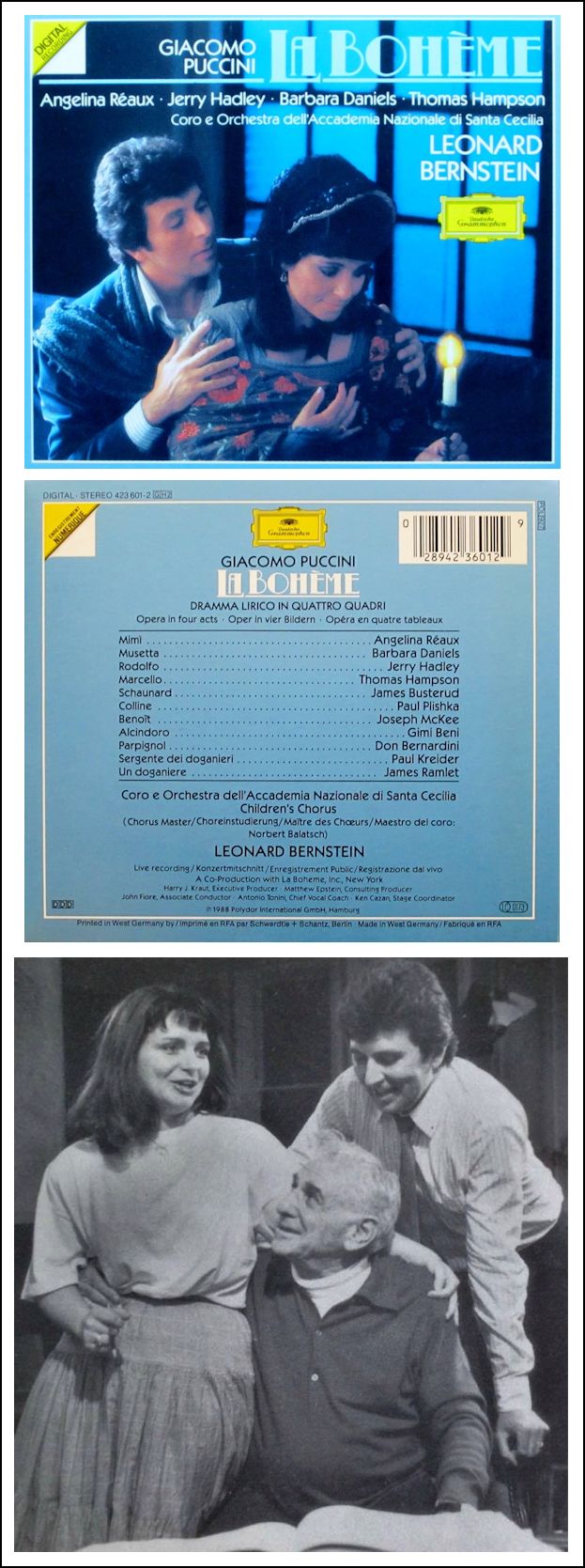
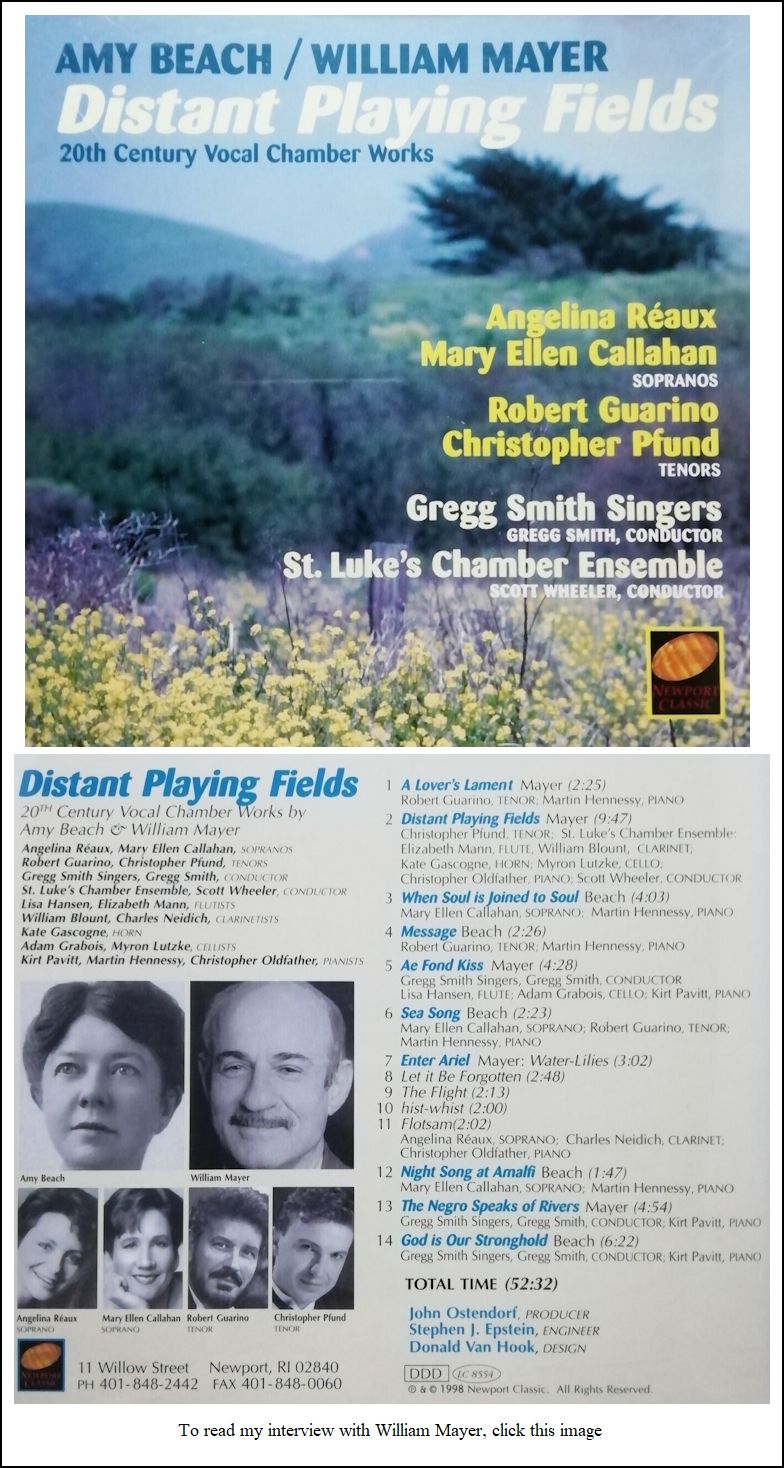
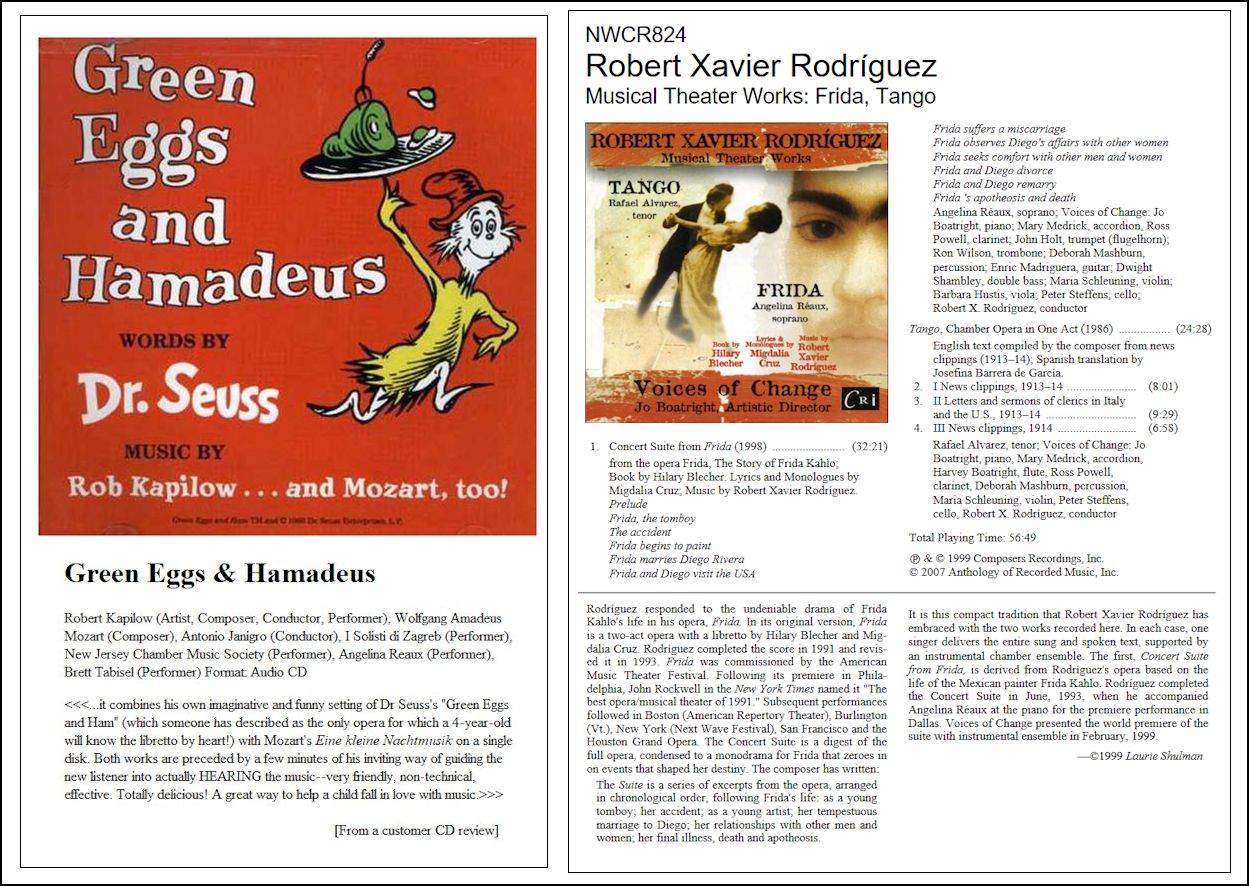
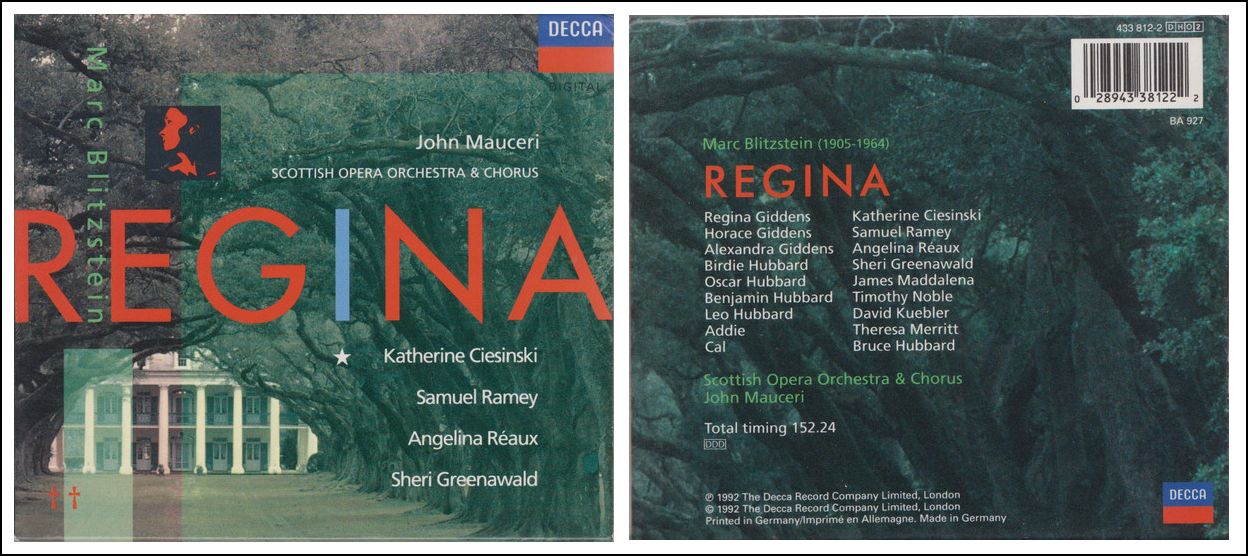
© 1997 Bruce Duffie
This conversation was recorded in Chicago on December 6, 1997. Portions were broadcast on WNIB the following April, and again in 1999. This transcription was made in 2024, and posted on this website at that time. My thanks to British soprano Una Barry for her help in preparing this website presentation.
To see a full list (with links) of interviews which have been transcribed and posted on this website, click here. To read my thoughts on editing these interviews for print, as well as a few other interesting observations, click here.
Award - winning broadcaster Bruce Duffie was with WNIB, Classical 97 in Chicago from 1975 until its final moment as a classical station in February of 2001. His interviews have also appeared in various magazines and journals since 1980, and he continued his broadcast series on WNUR-FM, as well as on Contemporary Classical Internet Radio.
You are invited to visit his website for more information about his work, including selected transcripts of other interviews, plus a full list of his guests. He would also like to call your attention to the photos and information about his grandfather, who was a pioneer in the automotive field more than a century ago. You may also send him E-Mail with comments, questions and suggestions.